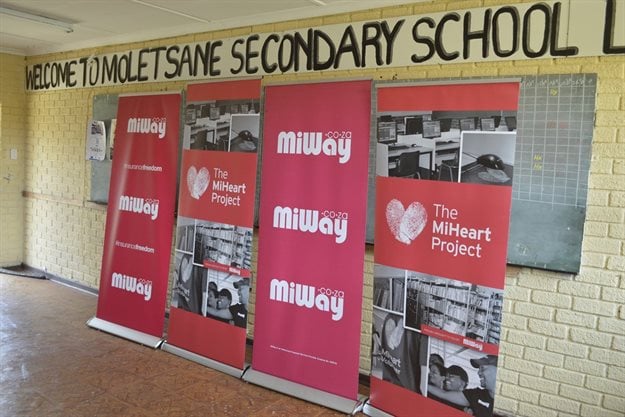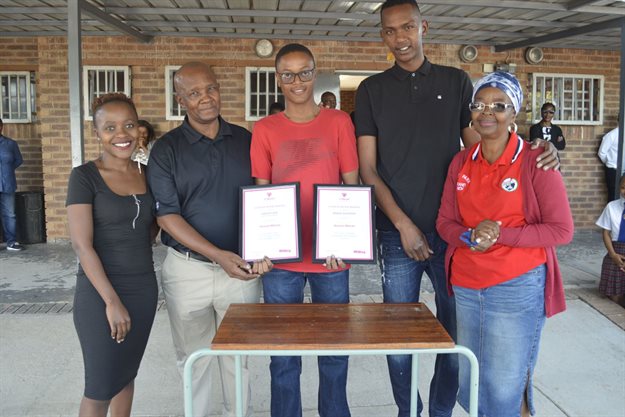
Top stories






More news


Marketing & Media
Ads are coming to AI. Does that really have to be such a bad thing?














This does not bode well for South Africa's youth as, according to official figures released in 2019, 55% of graduates under 24 were without work. Representing Quarterly Labour Force Survey data for the three month up to March 2020, this figure is likely to be further exacerbated as the nationwide lockdown came into effect.
It is now more important than ever to equip local learners with the necessary skills to reignite the economy, something that can only be achieved by providing them with adequate resources and learning tools. Through its MiHeart Project, it has so far provided six South African schools with fully installed computer labs and internet services. The insurance provider’s ongoing initiative has gone on to provide fully stocked libraries to selected schools and introduced numerous activities into their curricula, including mentorship programmes and career days.
Four top academic achievers are chosen from two of the high schools on the MiHeart Project to partake in a mentorship programme in their Grade 12 year, during which they are paired with MiWay management staff, who provide guidance and support. Thereafter, the top performing learners obtain bursaries for their tertiary studies.
Itumeleng Mnisi, a former learner at one of the schools, Moletsane Secondary School, was in grade 9 when MiHeart began working with her school. Mnisi, now a third-year BCom Finance student, thanks to a bursary from MiWay, believes that MiHeart’s Leaders in the Making programme contributed significantly towards her career prospects.

“I was confused at first and didn’t know what I wanted to do until I became part of the programme and had an opportunity to job shadow,” says Mnisi, who is currently pursuing her dream to become a CA. “After that, I decided to pursue a BCom Finance and had the opportunity to work with the finance department at MiWay, which gave me great exposure and helped me to understand what I really wanted to do.”
Baninzi Mdoda, who matriculated from Maphutha Secondary School in Tembisa and is currently studying a BCom in Law with a bursary from MiWay, echoes these sentiments. “The programme has widened my path, enabling me to pursue my passion and ensure that my studies are monitored, which will hopefully allow me to be recognised nationally once I graduate,” says Mdoda, who dreams of one day opening his own law firm.

For Kutloano Losaba, a Moletsane Secondary School matriculant, MiHeart’s investment in a fully equipped computer lab in his matric year significantly enhanced his ability to secure excellent results in his final exams. One of the first learners to take part in MiHeart’s mentorship programme, Losaba received a study bursary from the MiHeart Project and has since gone on to pursue his tertiary studies at Wits, where he is currently working towards his dream of becoming a chartered accountant.
The MiHeart initiative’s Leaders in the Making mentorship programme has thus far been responsible for uplifting 83 high-potential learners from underprivileged communities, 30 of which have since gone on to join internship programmes and seven have been awarded tertiary education bursaries.

“We believe in the possibility of young people achieving great things, provided they have the tools to do so,” says Nthabiseng Moloi, head of brand and marketing at MiWay. “Over the past few years, we have invested just over R1m toward tertiary education, supporting students via mentorship programmes, job shadowing opportunities and bursaries, which are now awarded every year. In this time of crisis, it’s even more important to us to go out of our way to nurture our youth, who will ultimately have a large role to play in rebuilding our economy for the future.”
“It’s time that we start changing the narrative in South Africa, addressing this pressing social issue, one young mind at a time,” says Moloi. “It’s only by taking small steps to address larger problems that we can truly effect change and enable South Africans to live their way.”